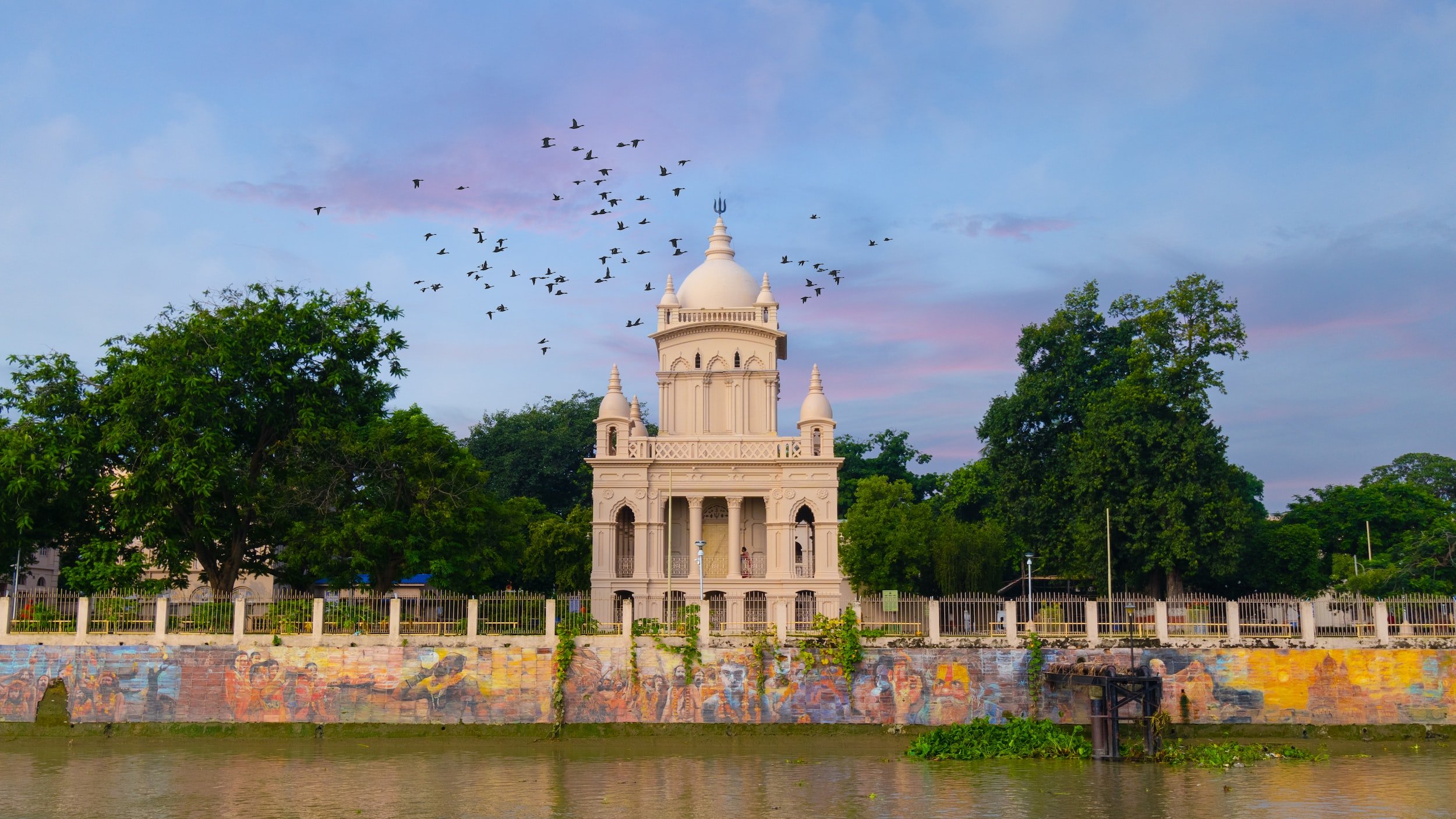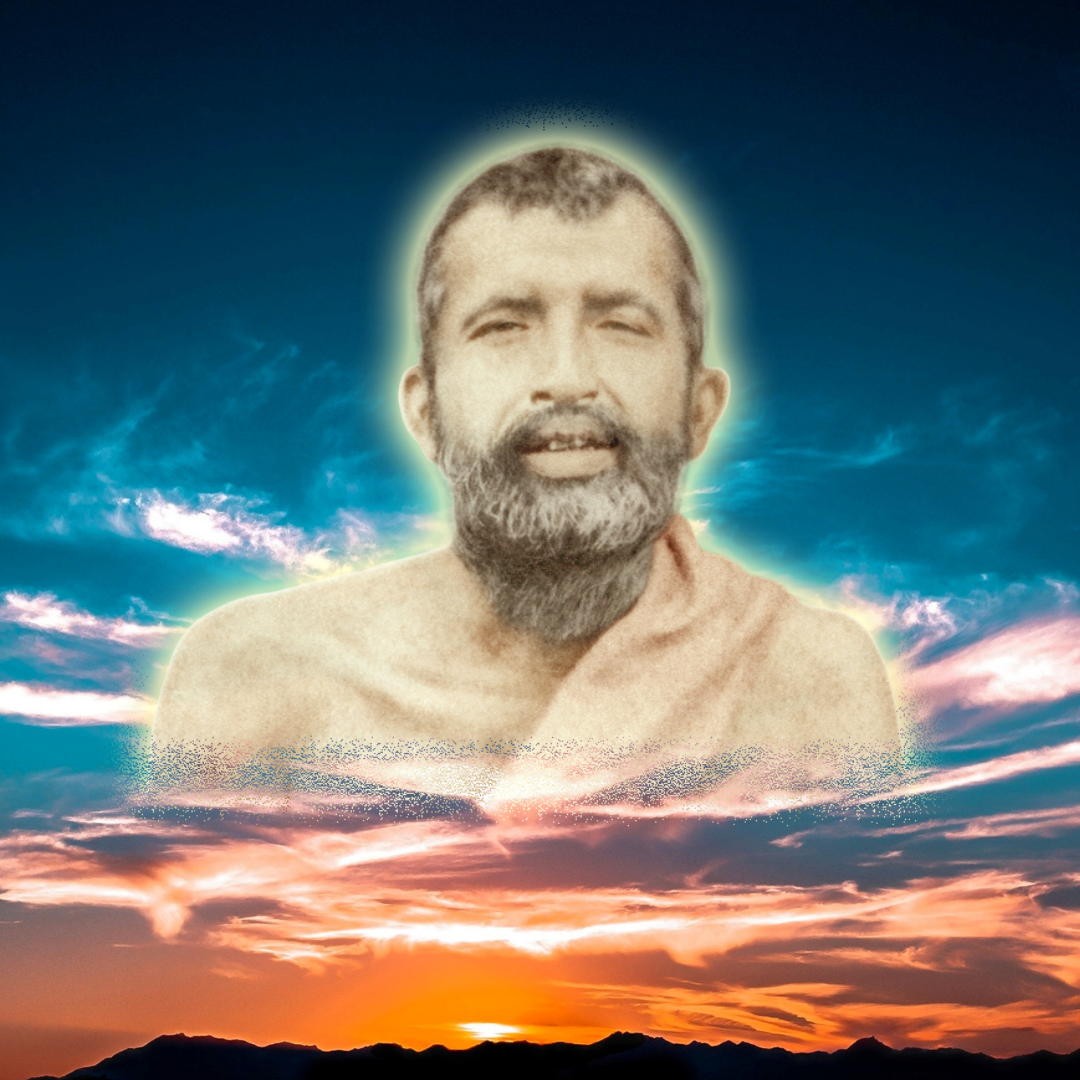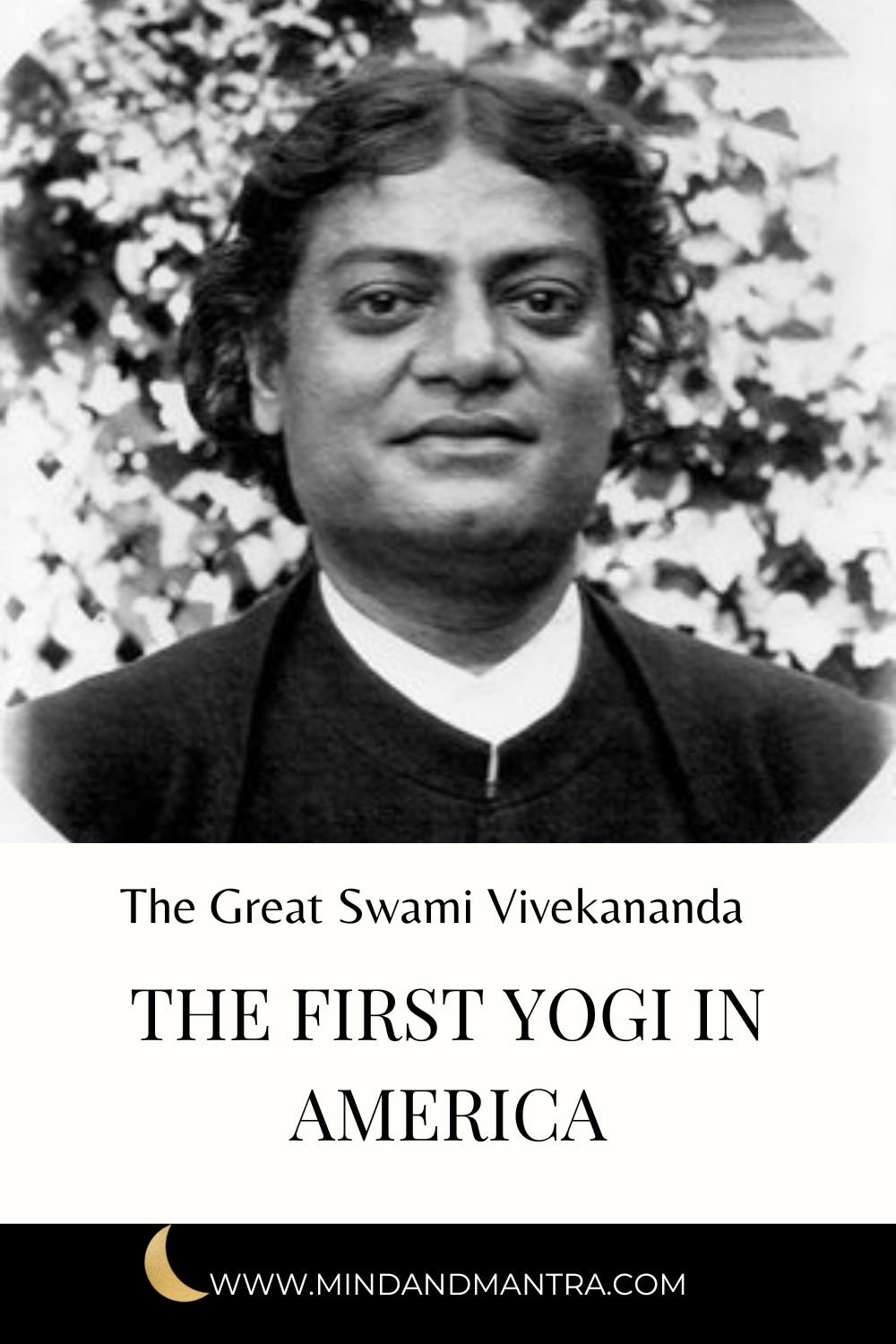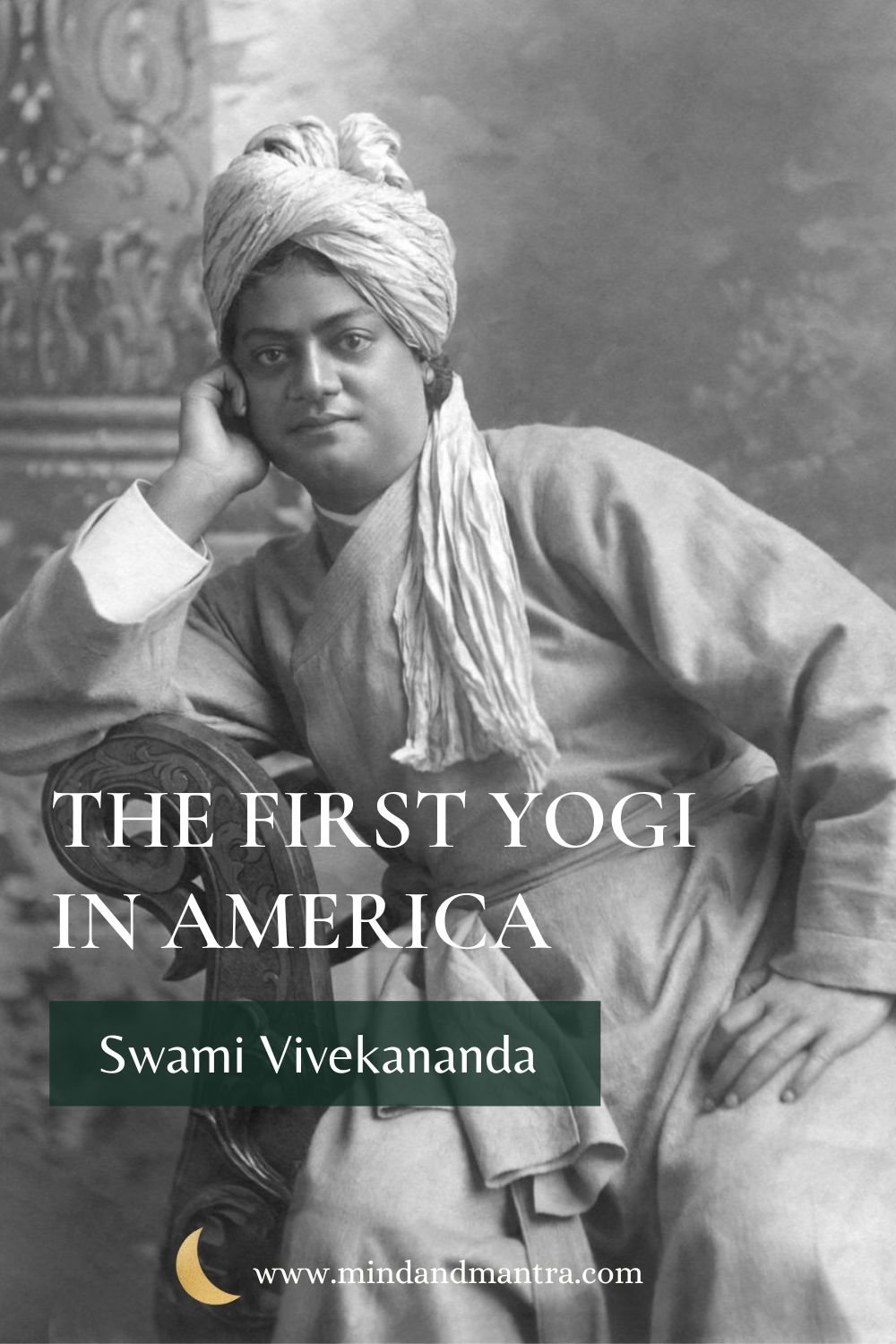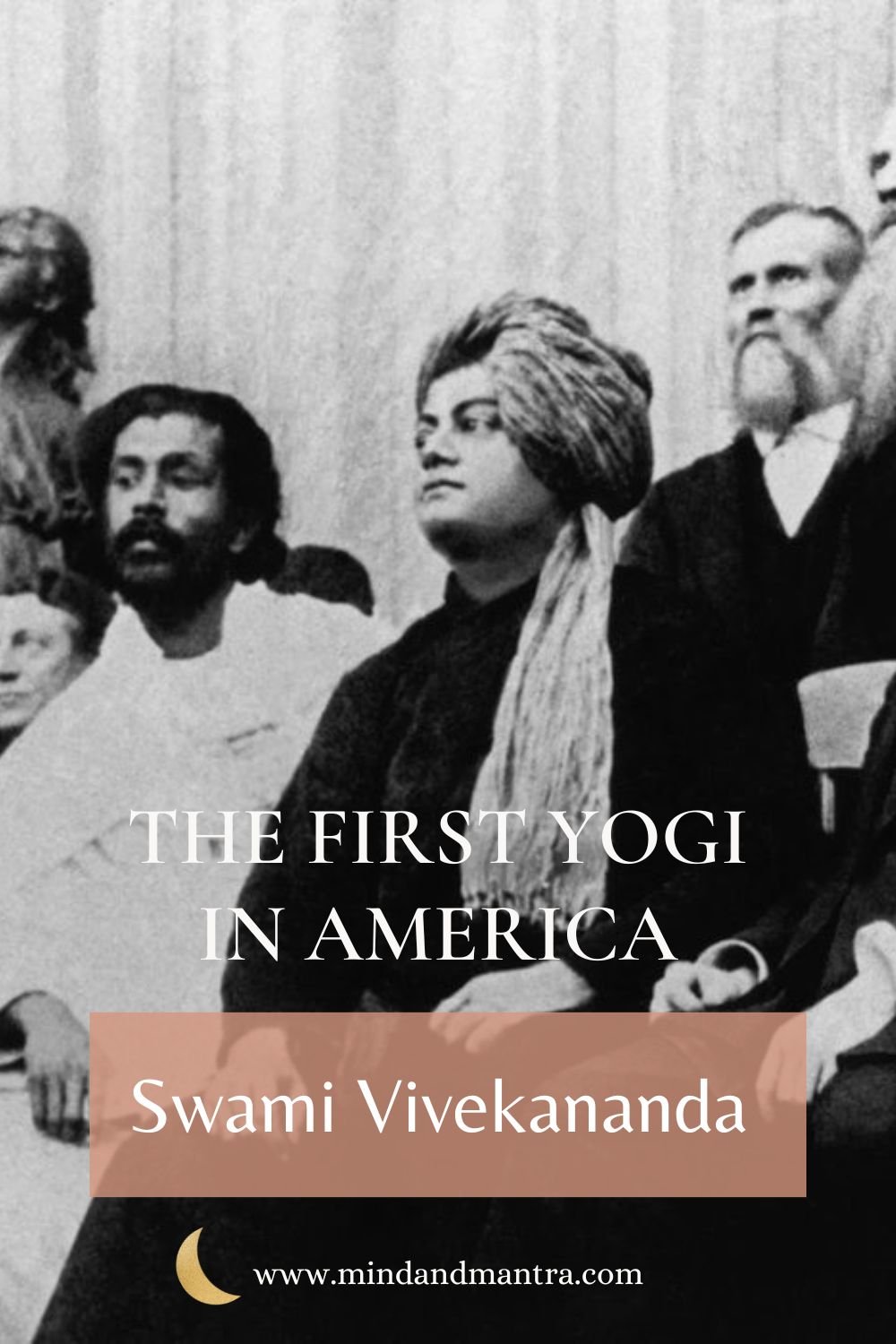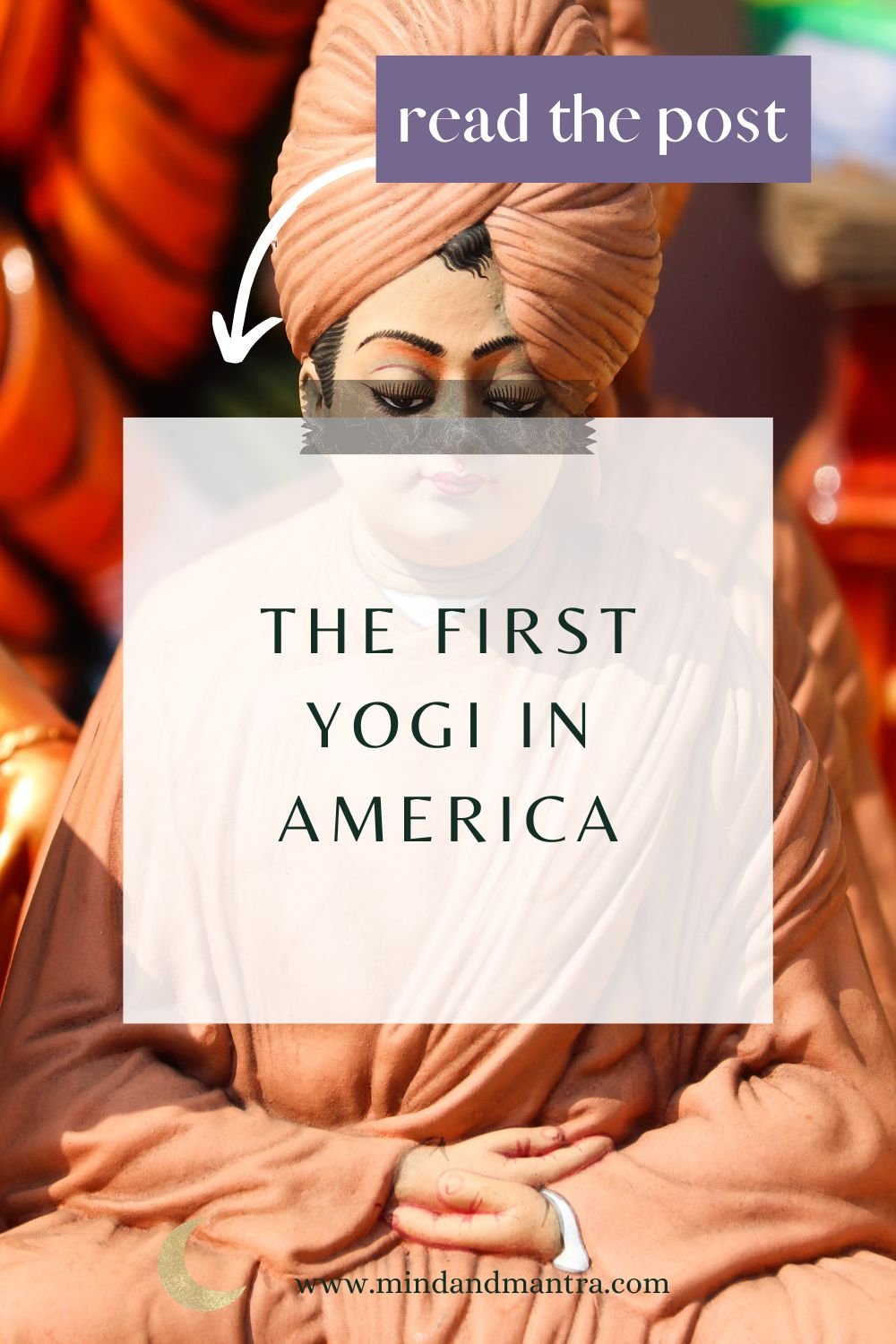The First Yogi in America, The Great Swami Vivekananda
The First Yogi in America…..
Bringing the House Down at the Chicago World Fair
Swami Vivekananda is a world-renowned Hindu monk from Kolkata, India. He is the first Yogi to spread Hinduism and Vedanta to the West. He arrived in Chicago at the World’s Fair in 1893 to speak for the most prestigious Parliament of Religions. This was a groundbreaking event.
It was literally the world stage during this part of history. Here was this Hindu monk in the foreign land of America addressing some of the greatest minds and well-to-do families of the time.
He “brought the house down,” cheers rose from the crowd the minute he opened his mouth starting his famous speech with “brothers and sisters of America”.
People thronged to see him as if he were a turn-of-the-century rock star. He was an absolute orator like no other. Mostly he spoke impromptu about the ancient words of the Vedas and the unity of all religions.
All the while his most authentic, authoritative, and beautiful translation and inspiring wisdom flowed from his lips.
The crowd was absolutely mesmerized. Many newspaper articles and witnesses interviewed during this time attested to his greatness and agreed that they had never seen such a force of nature, a spiritual dynamo that holds the entire crowd absolutely mesmerized.
There are volumes and volumes of books transcribed from his live lectures. It is really something no ordinary person could have done what Swamiji did in such a small amount of time.
Swami Vivekananda at the Parliament of Religions in Chicago
The Icon and Legend
In India, you will see streets named after him, and statues everywhere of him in West Bengal. He was a leader of the wisest kind and a man of sheer strength of mind and will.
Few men have been recorded in history like him. He tirelessly worked to relieve the woes of poverty-stricken India and yet cooled the American rajasic fire with his moonlike love.
He was plain and simply an absolute Rock Star…so broad minded -so understanding- so absolutely beyond his time!
He was a monk, which means he never married, never had a wife, and lived the life of a celibate brahmacharya. In India, this is not uncommon. Monks are many in number and do much good to the world with their prayers, chanting, service, wisdom, and God realization.
They keep nothing for themselves. They take no wife. They serve all as god in man. They are sadhus (holy men) who roam the earth as lions among men.
His Timelessness
There is no Swami Vivekananda of the late 1800’s. There is only the Swami Vivekananda of right now, always present, always now.
He will always be timeless and relevant to the exact minute you think of him. He imbibes transcending space and time. A fearless leader of the highest order.
What Mahatma Gandhi says about Swamiji
Mahatma Gandhi was an enormous fan of Swamiji and is said on many occasions to get his inspiration from him. Here is a recount of one of his speeches mentioning Swamiji:
Mahatma Gandhi came to Belur Math on 30 January 1921, to join Swami Vivekananda’s birthday celebration. There he was requested to deliver a speech. Gandhi assented to the request and delivered a brief lecture. In the lecture he told—[1]
I have come here (Belur Math) to pay my homage and respect to the revered memory of Swami Vivekananda, whose birthday is being celebrated here today. I have gone through his works very thoroughly, and after having gone through them, the love that I had for my country became a thousand-fold. I ask you, young men, not to go away empty-handed without imbibing something of the spirit of the place where Swami Vivekananda lived and died.
https://vivekavani.com/mahatma-gandhi-swami-vivekananda/
A Brief Sketch of His Story
There are many biographies written about Swami Vivekananda that detail his accounts in India and abroad. They are inspiring and for many, life-changing. If you haven’t read any of the books about him, try a few of these biographies.
They go into great detail about all of his travels, his lectures, and his interactions with the common beggar to Harvard University professors.
Swami Vivekananda’s memorial temple as seen from the sacred Ganga river.
His Early Life in Kolkata
Swami Vivekananda bridge in Kolkata.
A very brief sketch of his life starts in Kolkata, India. He grew up in Kolkata at the height of British rule and influence.He came from a wealthy and cultured family with a very devout mother and a father who held artistic and religious parties and festivities with music and art on a grand scale in their home all of the time.
His father was a lawyer and they were very affluent at this time.
This same home has been turned into the Vivekananda Ancestral home in Kolkata that you can visit. It’s quite amazing to see how he lived in his youth.
The “puja” (worship) hall is like nothing I’ve ever seen. It was like a grand cathedral. A giant hall for worshipping God and music and festivities.
His mother was very devout with her own room for worship and her own beautiful Shiva Linga. She actually worshipped Shiva devoutly for a very long period along with austerities and fervently prayed to him for a son, and thus Swami Vivekananda was born.
Swami Vivekananda’s Unending Talents
He was a man of giant intellect, superhuman talent, a memory like no other, and absolute genius in all respects. He was a talented musician, singer and orator.
He was particularly known in the gospel of Sri Ramakrishna as an expert musician. He would be asked by Sri Ramakrishna to sing often.
His voice was apparently from another universe full of beauty and pathos. One can only imagine his soul enthralling chanting and singing.
He could play several drums, the tanpura, and was a trained singer. Indian classical music is no joke too. It is extremely difficult to master but he exceeded in all areas with the kind of jaw dropping expertise that left people always wanting to hear more. He studied under several great teachers of that time in Bengal as a boy.
As his family was upper class he had private tutors and teachers.
He was a brilliant student and excelled in all academic matters. He was a notorious debater and nobody stood a chance against him.
Turn of Events for the Family
But to his family’s devastation, his father suddenly died and of course this was during the times of no life insurance, and his father had no savings. This left Swamiji suddenly destitute with his mother and young brothers and sisters to look after.
It is a heart-wrenching time to read about. Sometimes there were days he went hungry just to make sure his family could eat.
This was around the time he found Sri Ramakrishna Paramahamsa.
There is a famous story of him being in such grief about his family’s poverty that he asked Sri Ramakrishna to intervene. Sri Ramakrishna told Swamiji to go pray to Kali in her Mandir right across the courtyard at Dakshineswar.
He went to Kali 3 times and couldn’t ask her for being overtaken with emotion and devotion to her. So Sri Ramakrishna said fine they shall have plain clothes and food.
This was a very significant incident since up to this time Swamiji was not a believer in God with form, or idol worshipping:) But Mother Kali had other plans for him and brought him to his knees.
His devotion to Her was just at the start of its magnificent bloom.
Sri Ramakrishna
The Meeting of Sri Ramakrishna
Sri Ramakrishna, the God Intoxicated Mystic of Dakshineswar, God incarnate and inseparable devotee of the Divine Mother Kali, was Swami Vivekananda’s all in all!
His Guru, his God, his Master. It is through Sri Ramakrishna’s teachings and Divine Power, that Swamiji continued his message that spread all over the world.
It should be noted here as well that Vedanta (Swamiji’s main teachings he took to the West) spread all over the world in an unprecedented amount of time.
On his deathbed, Sri Ramakrishna literally transferred his power to Swamiji and told him he would have to teach many. And this, he did.
But fascinating and even comical, Swamiji thought Sri Ramakrishna was crazy when he first met him. Yet Sri Ramakrishna was irresistible and Naren (Swamiji’s name before he was Swami Vivekananda) just kept going back and back and back to see him.
This strange attraction Swamiji thought! But I must keep seeing him.
Sri Ramakrishna asked him to sing a song during one of his first meetings and this is what Swamiji recalled himself about this famous encounter.
“Well, I sang the song ; but shortly after, he [Sri Ramakrishna] suddenly rose and taking me by the hand led me to the northern verandah, shutting the door behind him. It was locked from the outside ; so we were alone. I thought that he would give me some private instructions.
But to my utter surprise he began to shed profuse tears of joy as he held my hand, and addressing me most tenderly as one long familiar to him, said, ‘Ah, you come so late! How could you be so unkind as to keep me waiting so long!
My ears are well-nigh burnt in listening to the profane talks of worldly people. Oh, how I yearn to unburden my mind to one who can appreciate my innermost experience!
‘ Thus he went on amid sobs. The next moment he stood before me with folded hands and began to address me, ‘Lord, I know you are that ancient sage, Nara—the Incarnation of Narayana—born on earth to remove the miseries of mankind,’ and so on!
https://www.swamivivekananda.guru/2017/12/23/at-the-touch-of-the-master/
The Vision Sri Ramakrishna Had About Swami Vivekananda
Sri Ramakrishna saw Swamiji in a vision long before he came to him at Dakshineswar. Sri Ramakrishna told many about this vision and the level of Sage we are dealing with here in the incarnation of Swami Vivekananda.
Sri Ramakrishna’s exact words of how he knew Swamiji was coming to do his work are translated below:
“One day I found that my mind was soaring high in Samadhi along a luminous path. It soon transcended the stellar universe and entered the subtler region of ideas.
As it ascended higher and higher I found on both sides of the way ideal forms of gods and goddesses. The mind then reached the outer limits of that region, where a luminous barrier separated the sphere of relative existence from that of the Absolute.
Crossing that barrier, the mind entered the transcendental realm, where no corporeal being was visible. Even the gods dared not peep into that sublime realm, but had to be content to keep their seats far below.
The next moment I found seven venerable sages seated there in Samadhi. It occurred to me that these sages must have surpassed not only men, but even the gods, in knowledge and holiness, in renunciation and love.
Lost in admiration I was reflecting on their greatness, when I saw a portion of that undifferentiated luminous region condense into the form of a divine child. The child came to one of the sages, tenderly clasped his neck with his lovely little arms, and addressing him in a sweet voice attempted to drag his mind down from the state of Samadhi.
The magic touch roused the sage from his superconscious state, and he fixed his unmoving, half-open gaze upon that wonderful child. His beaming countenance showed that the child must have been the treasure of his heart. In great joy the strange child said to him, ‘I am going down. You too must go with me.’
The sage remained mute, but his tender look expressed his assent. As he kept gazing on the child, he was again immersed in Samadhi. I was surprised to find that a fragment of his body and rnind was descending on earth in the form of an effulgent light. No sooner had I seen Naren than I recognised him to be that sage.”
His Heart Wrenching Pain for India
Swamiji had a gigantic heart that radiated a diameter of love that is unmeasurable for the poor and destitute of India.
It was his mission to help the downtrodden in India. The poverty, the famine, and the British rule oppression at that time were what is heart broke for.
India weighed heavy on his heart and mind when he was in America and abroad and the money he collected from his lectures and American patrons he would send back to India.
He was determined to help the poor, sick, and uneducated in India.
He first came to America in 1893 quickly finding an American audience that relished his words.
After his benedictory presence on the Chicago World Stage as mentioned previously, his story continues in America with a lecture circuit and touching the lives of so many who came into contact with him. A dedicated group of followers all over America formed around him and heard his cause.
What did he do in America?
He spread the message of Vedanta. He spread the message of peace and he spread the message to serve God in man.
He delivered the Upanishads in such a clear and authoritative manner which had never been done before. This is where the great Vedanta philosophy came from along with the Bhagavad Gita and Shankara’s commentaries —but Swamiji shared this information to the world through a new lens. Which is part of the what made people throng to him.
He was highly educated in all religions and could recall historical facts about absolutely everywhere and would always put his opponent during a debate to shame ..wipe the floor with them. No one stood a chance to win a debate with Swamiji, these are superhumans.
He literally said Goddess Saraswati sits on his tongue and supplies him with all the knowledge he needs. There is a storehouse of knowledge that never runs out with these Giants.
What does Vedanta say?
The message of Vedanta is one of Unity. Unity in religions, Gods, and beliefs. The Self is the Self in everyone and the Self IS.
Tat twam asi, thou art that….this is the essence of Vedanta. Swamiji spread this as his main and most often talked about message. He wanted to give a tool to the West to use to find our true nature. To grow and thrive spiritually. Since then these Vedanta societies he originally founded in New York City, NY have grown worldwide.
Disciples of Swamiji:
In India, his brother disciples of course loved him with all heart and soul and served him as indeed their guru and leader. The prophet who came to deliver.
But in America, he had just as many admirers and those who were willing to help him in his cause and would follow him to the end of the earth. And some of them did end up moving to India to help his organization and cause. Particularly interesting were the women devotees.
There were quite a few American and British women who were his ardent followers. Many were upper-class well mannered women with their corsets and 1800’s style dresses and hats who followed Swamiji across the world and served until their deaths.
These women are fascinating. This is during a time in history when women didn’t even have the right to vote in America, much less the horrible practices that some (not all) had to endure in India. Many women were kept out of public in India during much of this time.
There were many horrible practices among vagrant sects of Hinduism. Not to digress, but just to show that Swamiji’s huge broadmindedness, his liberalism, a man way beyond his time. He saw no difference between men and women.
And here he came back to India from his heroic tour in America with American women by his side to lay down their lives for his cause. These women were enormously talented, outspoken, resourceful, financial supporters and his greatest adversaries.
It was because of so many of them, I believe, that his organization, Belur Math, was formed. Particularly Sister Nivedita, Sarah Bull, Josephine Macleod, Betty Leget, Sister Christine, and Mother Seiver were some of the first to come with him to India and were his lifelong supporters.
They worked for him long after his passing and devoted their lives to him. And these women were treated with such respect by the other brother monks when they came to India. It was like they had the royal pass in the court since they had arrived with the King.
They were some of his main financial supporters as well. Those who couldn’t support themselves financially gave in service including the famous Sister Nivedita, an Irish School Teacher from England who followed him to India and started a girls’ school and helped with many other philanthropic works.
There are still statues, memorials, and streets named after her for her tireless work for the people of Bengal. She actually had a hand in the Indian Revolution to reclaim their homeland from British rule. These women are iconic in the history of the Ramakrishna order.
Swami Vivekananda’s Legacy
The Ramakrishna Order is the world’s largest monastic order. This all started with Swami Vivekananda and his financial supporters that flocked to him in the West. The money he raised in America and Europe was sent back to India for their philanthropic works.
This helped the organization of the Monks of Sri Ramakrishna so that they could have a formal organization and a monastery to house all of the monks who gave nonstop service to the destitute and poor. They started relief work immediately and continue to this present day.
From rigorous touring, writing, uncompromising work, lectures, classes writing, and extensive travel back and forth between America, Europe, India, and more, his health broke. He had many physical problems and suffered a great deal from his heart, asthma and other painful ailments.
He did not live long, he died right at age 40. It is often said that these great ones come and go quickly. They do not stay long on Earth.
The Fourth of July is an important holiday for those who follow Vedanta and the Ramakrishna Tradition. This is the day Swami Vivekananda chose to give up his body. He had been granted a boon from Lord Shiva at Amarnath when he went on pilgrimage there that he may choose when he wants to give up his body.
We know that his love for America made him choose our day of Liberty for his liberation from his body, returning to his abode of divine ancient sages beyond the stellar, lunar and astral planes.
Yet, he is so close and tangible to his devotees. His hand still seems to guide his brother monks at every turn. His hand guides his devotees and the devotees of Sri Ramakrishna. There has never been such a broad heart and mind enter the World Stage and change it forever with such dynamo, deep Ancient Wisdom, and Love ….deep deep love for mankind.
All gratitude and pranams to these great souls of come to Earth for nothing but to give give give, they literally give until their bodies wear out.
Pranams Swamiji, please accept this as an offering.
Swami Vivekananda’s room in present time at Belur Math. Everything is kept just like it was when he lived there in the early 1900’s.
Standing there is the famous author of the Ramakrishna Order, Swami Chetanananda. I was in the room with him and was allowed to take this photograph.
Over 30 Inspiring Quotes from Swami Vivekananda
https://www.vedantany.org/sayings-of-swami-vivekananda/
Many times I have been in the jaws of death, starving, footsore, and weary; for days and days I had no food, and often could walk no further; I would sink down under a tree, and life would seem to be ebbing away. I could not speak, I could scarcely think, but at last the mind reverted to the idea: "I have no fear, nor death; never was I born, never did I die; I never hunger or thirst. I am It! I am It! The whole of nature cannot crush me; it is my servant. Assert thy strength, thou Lord of lords and God of gods! Regain thy lost empire! Arise and walk and stop not!" And I would rise up, reinvigorated; and here I am today, living! Thus, whenever darkness comes, assert the reality and everything adverse must vanish. For after all, it is but a dream. Mountain-high though the difficulties appear, terrible and gloomy though all things seem, they are but Maya. Fear not, and it is banished. Crush it, and it vanishes. Stamp upon it, and it dies.
The whole life is a succession of dreams. My ambition is to be a conscious dreamer, that is all.
"The mother's heart, the hero's will
The sweetness of the southern breeze,
The sacred charm and strength that dwell
On Aryan altars, flaming, free;
All these be yours and many more
No ancient soul could dream before-
Be thou to India's future son
The mistress, servant, friend in one."
I am proud to belong to a religion which has taught the world both tolerance and universal acceptance. We believe not only in universal toleration, but we accept all religions as true. As different streams having different sources all mingle their waters in the sea, so different tendencies, various though they appear, crooked or straight, all lead to God.
VIVEKA VAANI
Each soul is potentially divine. The goal is to manifest this divinity within, by controlling nature, external and internal. Do this either by work, or worship, or psychic control, or philosophy - by one, or more, or all of these—and be free. This is the whole of religion. Doctrines, or dogmas, or rituals, or books, or temples, or forms, are but secondary details.
The whole universe is one. There is only one Self in the universe, only One Existence.
You cannot believe in God until you believe in yourself.
PEARLS OF WISDOM
Arise, Awake and Stop not till the Goal is Reached.
To succeed, you must have tremendous perseverance, tremendous will. “I will drink the ocean”, says the persevering soul; “at my will mountains will crumble up”. Have that sort of energy, that sort of will; work hard, and you will reach the goal.
Let positive, strong, helpful thoughts enter into your brains from very childhood. Lay yourselves open to these thoughts, and not to weakening and paralysing ones.
Never mind failures; they are quite natural, they are the beauty of life, these failures. What would life be without them? It would not be worth having if it were not for struggles. Where would be the poetry of life? Never mind the struggles, the mistakes. I never heard a cow tell a lie, but it is only a cow—never a man. So never mind these failures, these little backslidings; hold the ideal a thousand times, and if you fail a thousand times, make the attempt once more.
Say, ‘This misery that I am suffering is of my own doing, and that very thing proves that it will have to be undone by me alone.’ That which I created, I can demolish; that which is created by someone else, I shall never be able to destroy. Therefore, stand up, be bold, be strong. Take the whole responsibility on your own shoulders, and know that you are the creators of your own destiny. All the strength and succour you want is within ourselves.
We must overcome difficulty by constant practice. We must learn that nothing can happen to us unless we make ourselves susceptible to it.
Take up an idea, devote yourself to it, struggle on in patience, and the sun will rise for you.
Strength is Life, Weakness is death.
Condemn none: if you can stretch out a helping hand, do so. If you cannot, fold your hands, bless your brothers, and let them go their own way.
This life is short, the vanities of the world are transient, but they alone live who live for others, the rest are more dead than alive.
The world is the great gymnasium where we come to make ourselves strong.
Feel like Christ and you will be a Christ; feel like Buddha and you will be a Buddha. It is feeling that is the life, the strength, the vitality, without which no amount of intellectual activity can reach God.
The will is not free—it is a phenomenon bound by cause and effect—but there is something behind the will which is free.
The moment I have realized God sitting in the temple of every human body, the moment I stand in reverence before every human being and see God in him—that moment I am free from bondage, everything that binds vanishes, and I am free.
You have to grow from the inside out. None can teach you, none can make you spiritual. There is no other teacher but your own soul.
The goal of mankind is knowledge. . . . Now this knowledge is inherent in man. No knowledge comes from outside: it is all inside. What we say a man "knows," should, in strict psychological language, be what he "discovers" or "unveils"; what man "learns" is really what he discovers by taking the cover off his own soul, which is a mine of infinite knowledge.
All differences in this world are of degree, and not of kind, because oneness is the secret of everything.
To devote your life to the good of all and to the happiness of all is religion. Whatever you do for your own sake is not religion.
The greatest religion is to be true to your own nature. Have faith in yourselves!
The spirit is the cause of all our thoughts and body-action, and everything, but it is untouched by good or evil, pleasure or pain, heat or cold, and all the dualism of nature, although it lends its light to everything.
It is our own mental attitude which makes the world what it is for us. Our thought make things beautiful, our thoughts make things ugly. The whole world is in our own minds. Learn to see things in the proper light. First, believe in this world -- that there is meaning behind everything. Everything in the world is good, is holy and beautiful. If you see something evil, think that you are not understanding it in the right light. Throw the burden on yourselves!
In one word, this ideal is that you are divine.
All the powers in the universe are already ours. It is we who have put our hands before our eyes and cry that it is dark.
Where can we go to find God if we cannot see Him in our own hearts and in every living being.
The Vedanta teaches that Nirvana can be attained here and now, that we do not have to wait for death to reach it. Nirvana is the realization of the Self; and after having once known that, if only for an instant, never again can one be deluded by the mirage of personality.
The Vedanta recognizes no sin it only recognizes error. And the greatest error, says the Vedanta is to say that you are weak, that you are a sinner, a miserable creature, and that you have no power and you cannot do this and that.
Never think there is anything impossible for the soul. It is the greatest heresy to think so. If there is sin, this is the only sin — to say that you are weak, or others are weak.
Truth can be stated in a thousand different ways, yet each one can be true.
"I am the thread that runs through all these pearls," and each pearl is a religion or even a sect thereof. Such are the different pearls, and God is the thread that runs through all of them; most people, however, are entirely unconscious of it.
“Face the brutes.” That is a lesson for all life—face the terrible, face it boldly. Like the monkeys, the hardships of life fall back when we cease to flee before them.
A tremendous stream is flowing toward the ocean, carrying us all along with it; and though like straws and scraps of paper we may at times float aimlessly about, in the long run we are sure to join the Ocean of Life and Bliss.
All is the Self or Brahman. The saint, the sinner, the lamb, the tiger, even the murderer, as far as they have any reality, can be nothing else, because there is nothing else.
All knowledge that the world has ever received comes from the mind; the infinite library of the universe is in our own mind.
All that is real in me is God; all that is real in God is I. The gulf between God and me is thus bridged. Thus by knowing God, we find that the kingdom of heaven is within us.
All truth is eternal. Truth is nobody’s property; no race, no individual can lay any exclusive claim to it. Truth is the nature of all souls.
Anything that is secret and mysterious in these systems of yoga should be at once rejected. The best guide in life is strength. In religion, as in all other matters, discard everything that weakens you, have nothing to do with it.
Are great things ever done smoothly? Time, patience, and indomitable will must show.
As body, mind, or soul, you are a dream; you really are Being, Consciousness, Bliss (satchidananda). You are the God of this universe.
As long as we believe ourselves to be even the least different from God, fear remains with us; but when we know ourselves to be the One, fear goes; of what can we be afraid?
Astrology and all these mystical things are generally signs of a weak mind; therefore as soon as they are becoming prominent in our minds, we should see a physician, take good food, and rest.
Be a hero. Always say, “I have no fear.” Tell this to everyone—“Have no fear.”
Blows are what awaken us and help to break the dream. They show us the insufficiency of this world and make us long to escape, to have freedom.
Come out into the broad light of day, come out from the little narrow paths, for how can the infinite soul rest content to live and die in small ruts?
Come out into the universe of Light. Everything in the universe is yours, stretch out your arms and embrace it with love. If you every felt you wanted to do that, you have felt God.
Delusion will vanish as the light becomes more and more effulgent, load after load of ignorance will vanish, and then will come a time when all else has disappeared and the sun alone shines.
Desire, ignorance, and inequality—this is the trinity of bondage.
Do not look back upon what has been done. Go ahead!
Don't look back—forward, infinite energy, infinite enthusiasm, infinite daring, and infinite patience—then alone can great deeds be accomplished.
Each work has to pass through these stages—ridicule, opposition, and then acceptance. Those who think ahead of their time are sure to be misunderstood.
Every step I take in light is mine forever.
Fear is death, fear is sin, fear is hell, fear is unrighteousness, fear is wrong life. All the negative thoughts and ideas that are in the world have proceeded from this evil spirit of fear.
Fill the brain with high thoughts, highest ideals, place them day and night before you, and out of that will come great work.
First get rid of the delusion “I am the body,” then only will we want real knowledge.
Freedom can never be reached by the weak. Throw away all weakness. Tell your body that it is strong, tell your mind that it is strong, and have unbounded faith and hope in yourself.
Go on saying, “I am free.” Never mind if the next moment delusion comes and says, “I am bound.” Dehypnotize the whole thing.
Great work requires great and persistent effort for a long time. … Character has to be established through a thousand stumbles.
Hold to the idea, “I am not the mind, I see that I am thinking, I am watching my mind act,” and each day the identification of yourself with thoughts and feelings will grow less, until at last you can entirely separate yourself from the mind and actually know it to be apart from yourself.
However we may receive blows, and however knocked about we may be, the Soul is there and is never injured. We are that Infinite.
If there is one word that you find coming out like a bomb from the Upanishads, bursting like a bombshell upon masses of ignorance, it is the word “fearlessness.”
If you think that you are bound, you remain bound; you make your own bondage. If you know that you are free, you are free this moment. This is knowledge, knowledge of freedom. Freedom is the goal of all nature.
If you want to have life, you have to die every moment for it. Life and death are only different expressions of the same thing looked at from different standpoints; they are the falling and the rising of the same wave, and the two form one whole.
Impurity is a mere superimposition under which your real nature has become hidden. But the real you is already perfect, already strong.
Wow, that was a lot of info! If you want personal guidance with private meditation sessions, check out my offerings here.
Looking for more resources? Visit my most read blogs and get tons of good info and tips
Much Love! Much Light!
I’m cheering you on in your spiritual quest!
Heather Hathaway, M.Ed.



